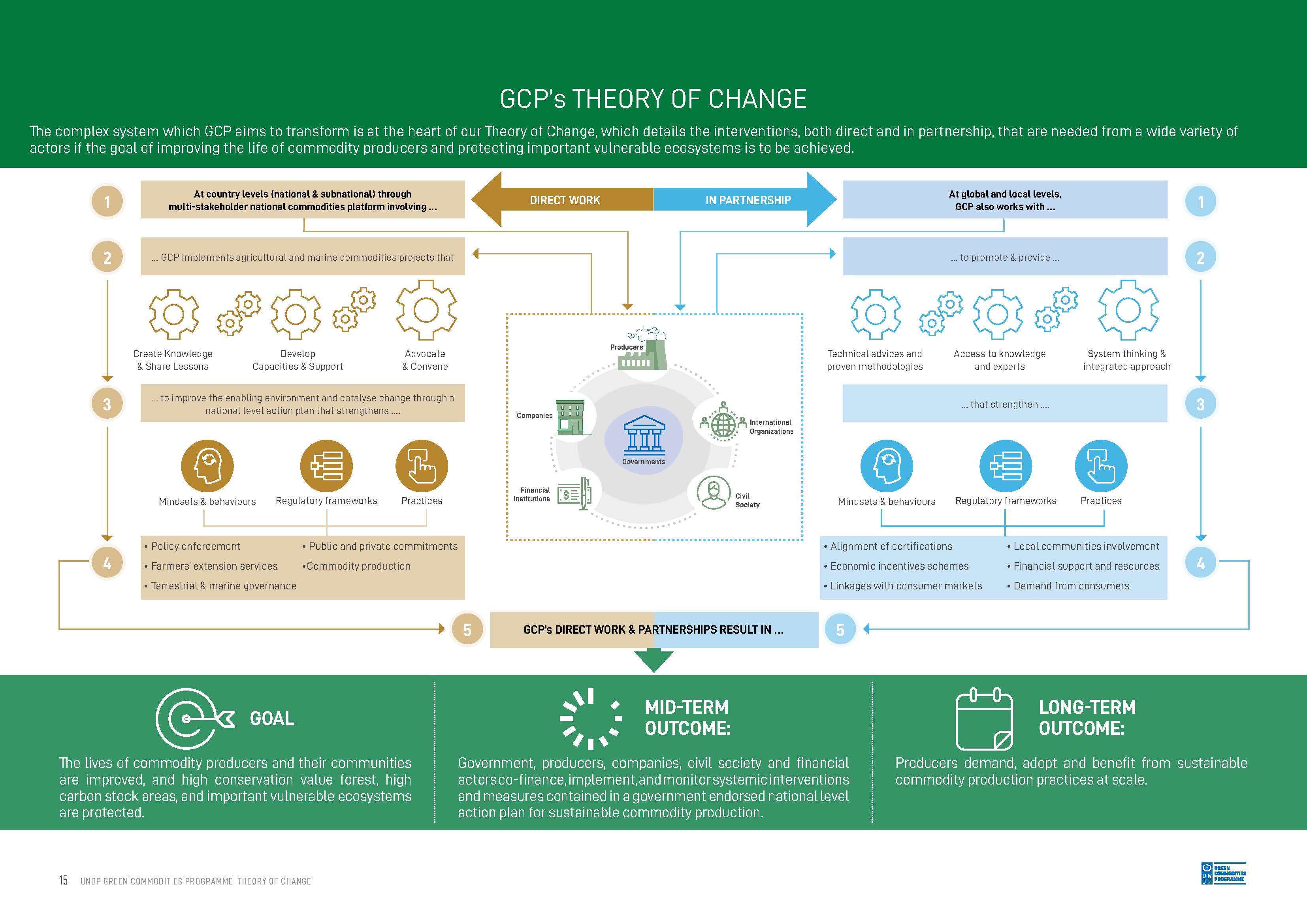
Our Initiatives
Green Commodities Programme
The UNDP Green Commodities Programme, funded by the Swiss State Secretariat for Economic Affairs (SECO), works to support the transformation of agricultural commodity sectors and production landscapes around the world, leveraging the power of effective collaborative action.
In 2010, UNDP launched the GCP in recognition of the importance of global agricultural commodities in achieving the SDGs, with a mission to:
- Improve the lives of farmers and their communities.
- Protect high conservation value forest and important vulnerable ecosystems.
The Challenge
Most commodity sectors in developing countries are afflicted by poor production practices that lead to increasing pressure on ecosystems and fail to improve the livelihoods of rural communities. Poor production practices often lead to negative environmental impacts such as biodiversity loss, deforestation, carbon emissions, soil erosion, depletion of water resources and contamination from chemicals.
But despite the progress made through standards and supply chain initiatives, weaknesses in the underlying enabling environment limit change at a larger scale. Improving the enabling environments is necessary to shape agricultural sectors that can give livelihood to future generations of farmers.
Our Strategy
The UNDP Green Commodities Programme acts as an enabler of mid to long-term national, structural and systemic commodity sector changes in support of sustainable agriculture. To achieve this, we:
- Facilitate the alignment of policies and actions
- Strengthen participation in inclusive governance
- Catalyze unlock large investments in sustainable commodity production and trade
GCP as part of UNDP's new Food Systems practice
Building on decades of support to food and agricultural commodity systems through regional, country, and sub-national-level interventions, UNDP is now launching a new Food Systems Strategy to bring everything together, focus its vision, enhance its support, and guide the organization's engagement with partners, including sister UN agencies such as FAO and UNEP, to transform these vulnerable systems.
GCP’s Signature Process
Sustainable commodities can only be achieved if developing countries align their stakeholders behind a shared vision for the future of their commodity sectors and engage and commit all actors in effort to generate change.
The typical sequence is for UNDP, as a neutral broker, to bring together all stakeholders into a commodity- and country-specific National Commodity Platform, which then collaboratively creates a National Action Plan.
Platforms are led and convened by government, driven by participants and enabled by UNDP through its country offices and GCP. A steering committee for the platform provides coordination and helps reach decisions by consensus. The National Action Plans articulate all agreed courses of action.
National Commodity Platforms and National Action Plans are driven by the need for coordinated action by all commodity stakeholders around a common agenda.
Download GCP Signature Process here.

In 2023 UNDP and the Swiss State Secretariat for Economic Affairs (SECO) launched the third phase of the Green Commodities Programme (GCP). Building on the efforts started in 2010, the renewed partnership aims to further enhance sustainable agricultural commodity production in five countries: Peru, Indonesia, Malaysia, Ghana, and Brazil. More information is available here.
The Aging Countryside
In 2025, UNDP published a photo story capturing Peru’s journey toward more inclusive and resilient coffee and cocoa systems. Set in Cusco and Cajamarca, The Aging Countryside explores how the Green Commodities Programme—implemented in partnership with SECO—is addressing the challenges of an aging rural population while supporting women, youth, and cooperatives to lead the transformation of food systems.

 Locations
Locations
